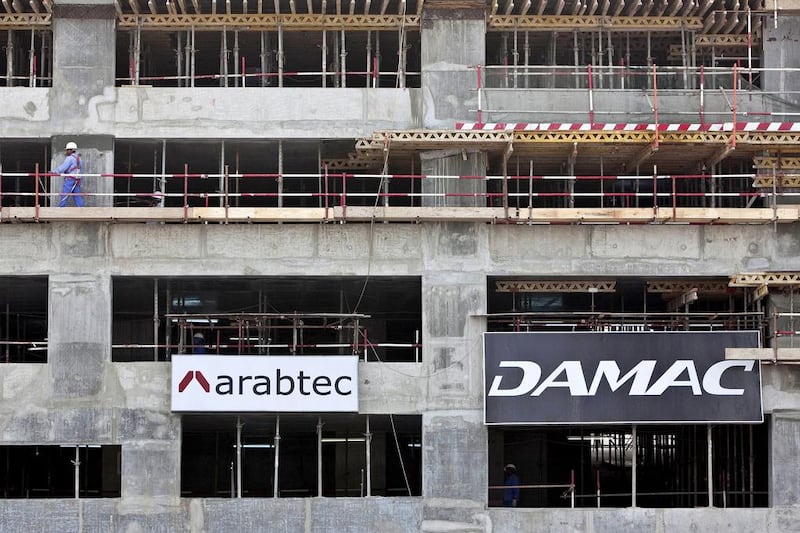Damac Real Estate Development yesterday announced a trebling of profits for 2013, cashing in on the revival of Dubai’s property market.
The developer’s profits grew to US$642 million for 2013, up from $213m in 2012.
Revenues also grew by 76 per cent during the year to $1.22 billion, up from $692m in 2012.
Damac said that a total of 2,123 units were completed during the year, taking the total number of completed units to 9,318, 92 per cent of which are in Dubai.
The company booked $2.45bn worth of sales for the year, nearly quadruple that of 2012.
Gross and net profit for the year came in ahead of expectations, despite lower than expected deliveries, according to one analyst.
The higher profits may be accounted for by higher-than-forecast presales, together with the method the company uses to recognise profits from the sale of land at villa complexes such as Akoya.
“2013 was a transformational year for Damac, with a significant increase in sales and profitability,” said Hussain Sajwani, Damac’s executive chairman.
“This was achieved against the backdrop of a recovery in the Dubai economy and the real estate market which allowed us to launch innovative new projects ... into an environment where high customer demand for luxury product far exceeds a low supply.”
However, Damac will be one of the first to feel the effects in the event that the emirate’s property market suffers a reversal, according to an analyst who did not want to be named.
“Theirs is a purely leveraged play on Dubai’s property market growth story,” he said.
“If things continue to go well for Dubai they’ll perform better than others, as they’ve been very aggressive in their marketing campaigns. If, however there’s another downturn they will suffer more, as they don’t have the recurring revenue base of someone like Emaar.”
A report issued by Citibank said that although current levels of construction in Dubai were in line with market fundamentals, there were increasing parallels with market conditions leading up to the real estate crash of late 2008.
However, Mr Sajwani expressed confidence in the fundamentals of Dubai’s economy, saying that the emirate remains key to the company’s growth.
“The real estate market, which is now well regulated, has recovered strongly with average yields outperforming both New York and London,” he said.
In December Damac Maison, a block of 355 serviced apartments overlooking the Dubai Mall and Burj Khalifa, was released. All but one of the apartments have been sold to investors.
The company has 9,206 hospitality units in progress, 8,088 of which are serviced apartments and the remainder hotel rooms.
Damac’s shares, listed on the London Stock Exchange in December, rose by nearly 4 per cent in early trading yesterday.
jeverington@thenational.ae
Follow us on Twitter @Ind_Insights





